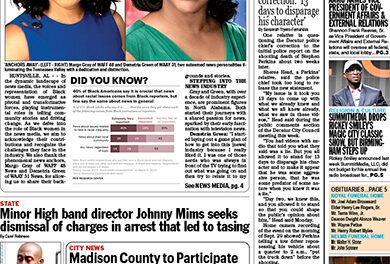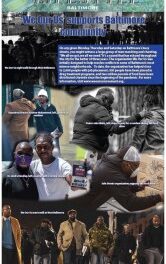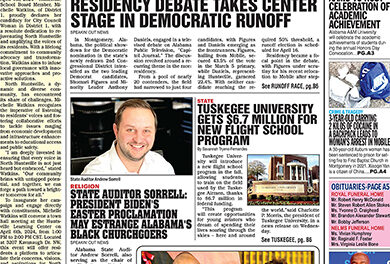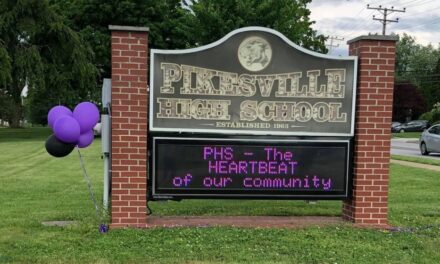By Ericka Alston Buck
Special to the AFRO
The spirit of Marcus Garvey was alive and well the evening of Feb. 3 as Baltimore hosted its inaugural Marcus Garvey Symposium at Trinity Baptist Church. The event, which began at 6 p.m., brought together scholars, community leaders and enthusiasts of Garveyism to celebrate and reflect on the life and teachings of one of history’s most influential Black leaders.

The highlight of the evening was a keynote address by Steven Golding, president of the Universal Negro Improvement Association and African Communities League (UNIA-ACL) Jamaica. Founded by Garvey in 1914, the UNIA-ACL remains dedicated to Garvey’s vision of African unity and self-determination.
Golding, a professor of Garveyism and the head of the Garvey Studies department at Hydel University in Jamaica, has made it his mission to continue spreading Garvey’s philosophy through education and public discourse.
Golding has spearheaded the Global Garvey Symposium Series, which has established annual lectures in Garvey’s honor across the globe, including in Barbados, Bermuda, Jamaica, St. Lucia, St. Vincent, Trinidad, and major cities such as Atlanta, London and New York. His address in Baltimore was a powerful addition to this growing tradition.
A night of reflection and celebration
Golding’s keynote was filled with powerful insights about Garvey’s impact and his continued relevance in today’s world. “This is part of a global series of symposiums that we started last year,” Golding explained. “The premise is that they take place at places where Marcus Garvey himself spoke and on the anniversary of the dates he spoke there.”
He went on to note the significance of Baltimore’s connection to Garvey, stating, “Marcus Garvey gave a three-night lecture series on February 1st, 2nd, and 3rd in Baltimore City. He was hosted right here at Trinity Baptist Church.”
Golding highlighted that Baltimore’s symposium was the fourth in this series, following previous events in Jamaica, Atlanta and Brooklyn. “We got a plaque done that said, ‘Marcus Garvey spoke here on this day,’” he shared. “We have to reclaim our history. It is not enough to simply remember it; we must honor and preserve it.”
Golding emphasized the importance of reconnecting African descendants with their true history, stating, “There was a diabolical and concerted effort to disconnect us from our history. Even in Jamaica, for decades, we have complained that the story of the Black man in schoolbooks begins with slavery.” He stressed the need to teach Black history beyond colonial narratives and celebrate the achievements of Black leaders.
In addition to Golding’s powerful speech, the evening featured cultural elements that engaged and entertained the audience. Baltimore attorney and stand-up comedian Derrick ‘Legal D’ Hamlin performed a comedy skit that provided a lighthearted yet thought-provoking perspective on race, justice and Black history.
Live music was performed by Jahiti, a celebrated Baltimore-based reggae and folk artist known for his soul-stirring performances and socially conscious lyrics. Jahiti, a member of the group Brown FISH, has been a staple in Baltimore’s music scene for decades, using his artistry to speak on issues of race, justice, and unity. His songs were particularly fitting for the evening’s theme, setting the tone for the night’s most anticipated segment: the screening of “Mosiah.”
“Mosiah”: The first feature film about Marcus Garvey
The event culminated in a special screening of “Mosiah,” the first-ever feature film produced about the life of Marcus Garvey. The film focuses on Garvey’s controversial arrest, trial and sentencing for mail fraud in the United States, which ultimately led to his deportation to Jamaica. Garvey was convicted in 1923 on charges related to the sale of Black Star Line stock. Many historians argue that the charges were politically motivated, aimed at dismantling the growing influence of Garvey’s movement, which advocated for Black economic independence and Pan-African unity.
For years, activists and scholars have fought to clear Garvey’s name, and in 2025, a posthumous presidential pardon was granted, acknowledging the unjust nature of his conviction.
“Mosiah” was a powerful and moving portrayal of Garvey’s life, emphasizing his determination, vision, and the obstacles he faced. The film’s gripping courtroom scenes and emotional depth resonated with the audience, leaving many in attendance deeply moved.
One attendee, Angela Thompson, described the experience as eye-opening. “I’ve read about Marcus Garvey before, but seeing his story unfold on screen made me realize just how much he sacrificed for our people. This was a necessary film.”
Another guest, Malik Carter, reflected on the symposium as a whole. “Tonight was more than just an event—it was a call to action. We need to keep Garvey’s teachings alive in our communities and educate the next generation about what he stood for.”
The inaugural Baltimore Marcus Garvey Symposium was a resounding success, bringing together voices from across the city and beyond to honor a leader whose vision still guides many today. As Baltimore joins the growing list of cities hosting this symposium series, it is clear that Garvey’s legacy remains as relevant as ever.
For those who missed the screening, “Mosiah” is now available for streaming on Amazon Prime. With plans already in motion for next year’s symposium, the work of keeping Garvey’s message alive continues.
The post Baltimore hosts inaugural Marcus Garvey Symposium at Trinity Baptist Church appeared first on AFRO American Newspapers.











